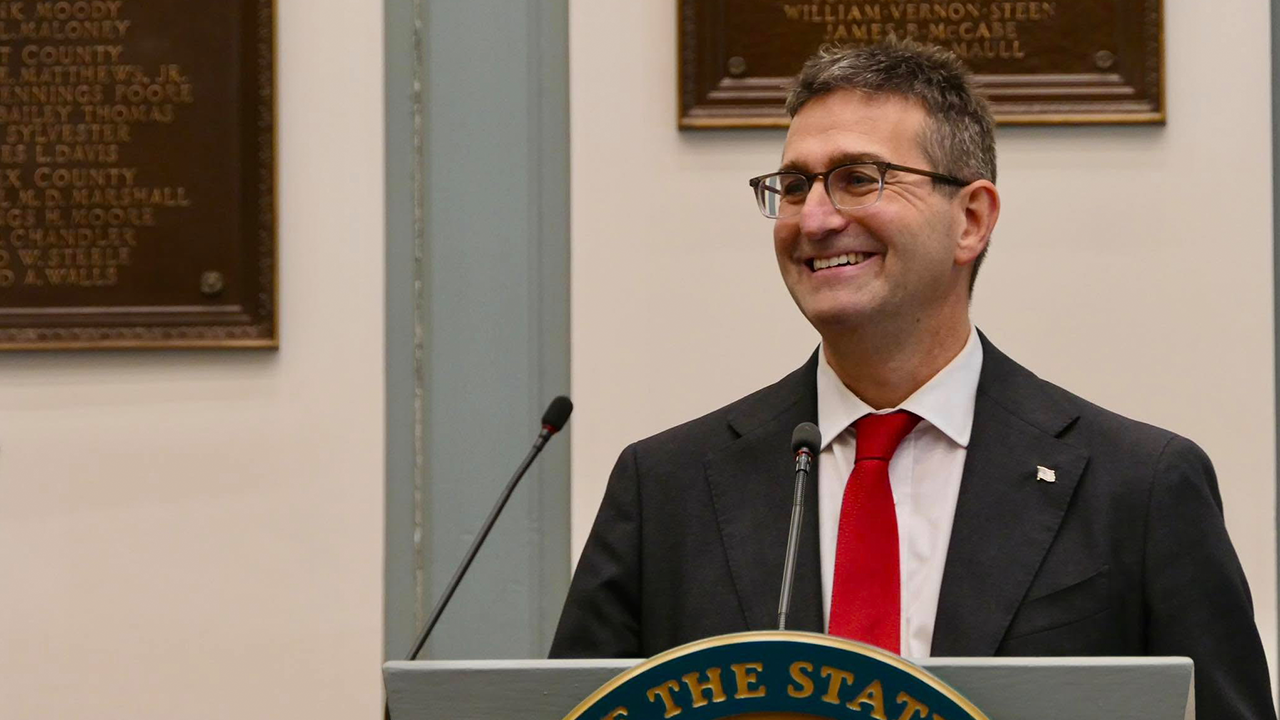Reporting by Steve Scherer and David Ljunggren in Ottawa
Writing by Denny Thomas
Editing by Leslie Adler
Finance
Canada finance minister defends central bank independence after rate comment
/cloudfront-us-east-2.images.arcpublishing.com/reuters/DIEBXRYXRZLQTAENTNVGFPMTHE.jpg)
[1/2]U.S. and Canada Dollar notes are seen in this June 22, 2017 illustration photo. REUTERS/Thomas White/Illustration Acquire Licensing Rights
Sept 6 (Reuters) – Canadian Finance Minister Chrystia Freeland defended the central bank’s independence on Wednesday after her comments welcoming the Bank of Canada’s decision not to increase its key interest rate raised concerns to the contrary.
In a widely expected decision, the Bank of Canada held interest rates steady at a 22-year high of 5%. Shortly after that Freeland issued a statement saying the central bank’s decision “is welcome relief for Canadians.”
“My number one priority is to use all the tools at my disposal, and to work with partners at other levels of government across Canada, to ensure that interest rates can come down as soon as possible,” Freeland added.
It is rare for Canadian government ministers to publicly back or criticize central bank policies. Like many developed economies, the Bank of Canada makes its monetary policy decisions independent of the federal government.
An economist from one of Canada’s top six banks found Freeland’s Wednesday comments “unhelpful.”
Derek Holt, an economist with the Bank of Nova Scotia, said in a note to clients that the concluding line from the minister’s statement about working “to ensure that interest rates can come down as soon as possible” is not the domain of a finance minister.
The comments “create the impression that political interference risks influencing” the BoC’s decisions, he said.
In June, when the central bank raised rates for the first time after a four-month pause, Freeland stressed that she respected the independence of the central bank, a sentiment she repeated in a press conference later in the day.
Freeland said later on Wednesday that her comment was meant to reflect her sympathy for the financial pains endured by Canadians from higher interest rates.
The BoC’s record pace of interest rate hikes has dealt a blow to many highly indebted Canadians, and opposition Conservative party leader Pierre Poilievre has blamed Liberal Prime Minister Justin Trudeau’s policies for the cost-of-living crisis.
Freeland’s comments come just days after the premiers of Ontario, Canada’s most populous province, and British Columbia, wrote to central bank Governor Tiff Macklem urging him to stop interest rate hikes to end the suffering of Canadians.
Our Standards: The Thomson Reuters Trust Principles.

Finance
Trump’s IRS Pick Promised Tax Benefits to Finance CEO

Former Rep. Billy Long (R-MO), President Donald Trump’s pick to head the Internal Revenue Service (IRS), was invited to attend Trump’s inauguration as the guest of a financial services CEO who said Long promised him benefits for his company, according to a recording obtained by the Lever.
The executive also stated that Long planned to give a top government job to a campaign donor at an embattled financial firm. Companies peddling tax schemes “don’t have to worry” about regulatory crackdowns under Long’s oversight, added the executive.
In a corporate Zoom recording provided to the Lever by Sen. Ron Wyden’s (D-OR) office, Terry Kennedy, CEO of financial services company Appreciation Financial, noted he helped Long attend Trump’s inauguration.
“I call up one of my friends and I said, ‘Hey, the IRS Commissioner Billy Long, the new one coming in that we’re all excited about. . . Is Billy coming to the inauguration?’” Kennedy said. “And. . . my friend says, ‘Well, he doesn’t have a ticket. He’s not because he’s not confirmed yet.’ I said, ‘Well, make him my guest.’”
Kennedy went on to note that he and Long “had dinner one night” during the inauguration and that he “spent a few nights with [Long].”
During that same call, Kennedy addressed Employee Retention Tax Credits (ERC), a pandemic-era program that the IRS says has been the target of the agency’s “civil and criminal investigations of potential fraud and abuse.” Kennedy asserted that companies would no longer have to worry about such IRS scrutiny because Long sold such products himself.
“He actually pushed ERC; is that not a blessing?” said Kennedy. “We could be worried about promoter audits now. We could be worried about anything with the old administration. But Billy actually is now taking over, and we don’t have to worry about that stuff.”
Promoter audits are IRS investigations looking into potential “abusive tax promotions” and other matters. The IRS has been specifically targeting companies promoting ERC tax schemes.
Kennedy did not respond to a request for comment ahead of publication.
The April 15 Zoom recording is from a monthly “Huddle Up” meeting hosted by Linqqs, an employee benefits management company that donated $50,000 to Trump’s inaugural committee. Kennedy is listed as the manager of Linqqs on the Nevada state government’s website.
According to Kennedy, Long promised to give him a “private letter ruling” — a special IRS determination that helps taxpayers with complex IRS issues avoid potential tax violations, according to the tax agency.
“Billy, please take your sales hat off and put your new IRS commissioner hat on,” Kennedy recounted asking Long in a conversation, seeking advice about his business’s financial arrangement.
Kennedy also highlighted that Long intends to hire Mark Czuchry, an attorney and managing partner at financial advising firm Lifetime Advisors, as legal counsel at the IRS. Czuchry donated $2,900 to Long’s failed Senate campaign efforts after Trump selected him to head the IRS, and other Lifetime Advisors employees donated an additional $7,800 to Long’s coffers.
Lifetime Advisors is among a number of firms named in an April 14 letter from Senate Finance Committee Democrats calling for a criminal investigation into a “scheme to sell investors a fraudulent tax shelter.” Long worked with Lifetime Advisors in 2023 after leaving Congress, where he sold various tax products, including some of the same tax credits that Treasury officials told Senate Democrats “do not exist.”
The Lever previously reported that employees of Lifetime Advisors and others helped Long pay off $130,000 in personal debt via campaign donations after Trump selected him to head the tax agency in December. Following the Lever’s reporting, three senators launched an investigation into the matter on May 15.
During Long’s confirmation hearing on Tuesday, Democratic senators pressed Long about his industry donors, plans to weaponize the IRS against his nonprofit enemies, and his pandemic tax schemes.
In his interrogation, Wyden suggested that his staff investigators had found a recording of a tax promoter recounting that Long had promised him a private letter ruling in his new position at the IRS.
Long denied the allegation, “I was in my room for about fifty hours with food poisoning during the inauguration, so I didn’t talk to many people.”
“These taped conversations are so troubling to me,” said Wyden. “What’s at issue is peddling fake tax credits, scamming small businesses, this questionable array of campaign contributions. . . the extent to which you tried to avoid answering these questions suggests to me someone who’s been up to their eyeballs in this sort of questionable behavior.”
Finance
Trump’s tariffs will test unity among allies at G7 finance ministers’ summit – The Boston Globe

The Trump administration has reached an initial trade deal with one G7 member, the United Kingdom, and is engaged in talks with Japan and the European Union. But Canada still faces 25% duties on many of its exports to the United States, including autos, and the other three G7 members — France, Germany, and Italy — all face a baseline tariff of 10% on all their exports as part of the European Union.
It will be the first formal meeting of the G7 attended by U.S. Treasury Secretary Scott Bessent, who participated in a brief G7 gathering last month on the sidelines of the International Monetary Fund and World Bank meetings in Washington, D.C. Federal Reserve Chair Jerome Powell will also attend along with central bank governors from the other G7 nations.
“The message from colleagues is pretty clear is that a free and fair and a rules-based multilateral trading system, is a system in which we all win,” Francois-Philippe Champagne, Canada’s minister of finance, said Tuesday.
While many finance ministers gathered in Banff this week will likely seek one-on-one meetings with Bessent, it’s unlikely any trade deals will be reached, according to a person briefed on preparations for the meeting who spoke on condition of anonymity because they did not have authorization to speak about it publicly.
Instead, the finance officials will seek to smooth the way toward any agreements before a meeting of the heads of state of the G7 countries in June in nearby Kananaskis, Canada.
Bessent may be able to bring a more conciliatory tone to the meetings, Prasad said, as he is often seen as a relatively moderating influence on tariffs in the Trump White House.
And there will likely be some areas of agreement, particularly around the Trump administration’s goal to address what it calls “global imbalances” in world trade, a reference to the United States’ large annual trade deficits, which reflects that it imports more than it exports. The White House sees China as the key driver of such imbalances. China has a large trade surplus.
“Intentional policy choices by other countries have hollowed out America’s manufacturing sector and undermined our critical supply chains, putting our national and economic security at risk,” Bessent said in a speech last month during the IMF and World Bank meetings.
The status of the U.S. dollar may also come up, at least in informal conversations. The dollar dropped in value unexpectedly last month after Trump unveiled his widespread tariffs, while the interest rate on Treasury bonds rose, a sign international investors may have been dumping American assets as confidence in the country’s governance and economy eroded.
“In the hallways, they’re going to talk about nothing but tariffs and the dollar,” said Steven Kamin, a senior fellow at the American Enterprise Institute and former senior economist at the Federal Reserve.
At last year’s meeting of G7 finance officials in Stresa, Italy, they agreed on a joint statement that said the members have a “strong commitment to a free, fair, and rules-based” trading system. It’s not yet clear whether they will be able to agree on such a statement this year.
Another question hanging over the meetings will be whether the G7 can come to agreement on a new round of sanctions on Russia. The European Union and U.K. announced sanctions on Russian oil Tuesday, targeting Russia’s “shadow fleet” of unregistered oil tankers that are shipping its oil and allowing it to fund its war with Ukraine.
Proposals to lower a price cap on Russian oil, set as part of earlier rounds of international sanctions, down from its current level of $60 may also be discussed in meetings Wednesday.
Yet the Trump administration, while it has called for greater sanctions on Russian oil, hasn’t yet signed on to the new restrictions. Trump spoke with Russian President Vladimir Putin and Ukrainian leader Volodymyr Zelensky on Monday, and said the two countries would soon begin ceasefire talks, though no details were available.
Ukrainian Finance Minister Sergii Marchenko will also attend the G7 meetings this week, though Ukraine is not a member.
Daleep Singh, chief global economist at PGIM Fixed Income and a former deputy national security adviser in the Biden administration, said the issue of Russian oil sanctions will be a key test of what unity remains in the G7.
“If you’re looking for something to engender a just and lasting peace, oil sanctions are the place to look,” he said.
Finance
Bel Appoints Lynn Hutkin as Chief Financial Officer

WEST ORANGE, N.J., May 20, 2025 (GLOBE NEWSWIRE) — The Board of Directors of Bel Fuse Inc. (Nasdaq: BELFA and BELFB) (“Bel” or the “Company”) today announced the appointment of Lynn Hutkin as Bel’s Chief Financial Officer (CFO) effective immediately following Bel’s Annual Meeting of Shareholders to be held May 27, 2025. She will be responsible for Bel’s financial strategies and will lead the global finance organization, including planning, treasury, tax, reporting and investor relations. In her new role Ms. Hutkin is succeeding Farouq Tuweiq, Bel’s current CFO, who as previously announced will vacate his CFO role immediately following Bel’s 2025 Annual Meeting of Shareholders to be held May 27, 2025, upon Mr. Tuweiq’s assumption of the President and CEO role on that same date.
Ms. Hutkin joined Bel in 2007 and has held roles with increasing responsibilities, most recently serving in the role of Vice President of Financial Reporting and Investor Relations along with her designation as Principal Accounting Officer for Bel, which she will continue in her new role (together with her newly added designation as Principal Financial Officer). In addition to her primary roles, throughout her tenure at Bel, she has also been a leader in a variety of other areas including mergers and acquisitions, bank financing, corporate insurance and employee benefit programs. Ms. Hutkin started her career at Arthur Andersen within the audit group and subsequently held roles of increasing responsibility within finance at companies ranging from an IT consulting start-up to a $250 million publicly-traded courier company prior to joining Bel. Ms. Hutkin earned her B.S. of Accountancy from Bentley University and is an active CPA in the State of New Jersey.
“I am excited to continue working with Lynn and to build upon the accomplishments we have achieved since we began working together in 2021,” said Farouq Tuweiq, Bel’s current CFO. “Bel has gone through a number of transformational steps over the past four years and Lynn has been integral in strengthening best practices at Bel and enhancing financial discipline, financial reporting and internal procedures and controls throughout the organization.”
“I’m beyond honored to step into the CFO role and very excited for the new journey ahead,” said Lynn Hutkin. “I look forward to the continued partnership with Farouq and our talented team in attaining our future goals.”
About Bel
Bel (www.belfuse.com) designs, manufactures and markets a broad array of products that power, protect and connect electronic circuits. These products are primarily used in the defense, commercial aerospace, networking, telecommunications, computing, general industrial, high-speed data transmission, transportation and eMobility industries. Bel’s portfolio of products also finds application in the automotive, medical, broadcasting and consumer electronics markets. Bel’s product groups include Power Solutions and Protection (front-end, board-mount, industrial and transportation power products, module products and circuit protection), Connectivity Solutions (expanded beam fiber optic, copper-based, RF and RJ connectors and cable assemblies), and Magnetic Solutions (integrated connector modules, power transformers, power inductors and discrete components). The Company operates facilities around the world.
-

 Education1 week ago
Education1 week agoA Professor’s Final Gift to Her Students: Her Life Savings
-

 Politics1 week ago
Politics1 week agoPresident Trump takes on 'Big Pharma' by signing executive order to lower drug prices
-

 Education1 week ago
Education1 week agoHarvard Letter Points to ‘Common Ground’ With Trump Administration
-

 Culture1 week ago
Culture1 week agoTest Yourself on Memorable Lines From Popular Novels
-

 Culture1 week ago
Culture1 week agoBook Review: ‘Original Sin,’ by Jake Tapper and Alex Thompson
-

 News1 week ago
News1 week agoAs Harvard Battles Trump, Its President Will Take a 25% Pay Cut
-

 News1 week ago
News1 week agoWhy Trump Suddenly Declared Victory Over the Houthi Militia
-

 News1 week ago
News1 week agoAustin Welcomed Elon Musk. Now It’s Weird (in a New Way).




















